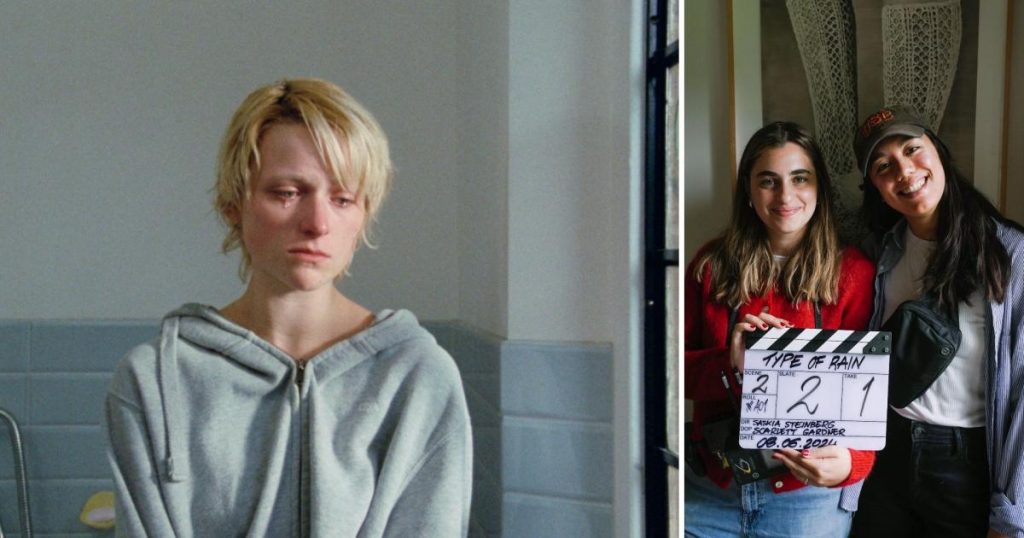While studying at Channing School in Highgate, the pair had experienced the loss of a close friend to cancer at the age of just 15.
It had a profound effect on their lives, and while looking back on their grief they discovered they had both turned to cold water swimming to heal.
“Our friend was a super popular girl, the nicest person, everyone loved her, and when she passed away it was such a shock.” says Saskia, now 24.

“It was a really confusing time for us because we were so young and it was difficult to process. I didn’t feel I had dealt with it until I got to university in Ireland and started to feel a profound and delayed grief.
“In Dublin there was this ritual that everyone would go out to the coast at the weekend and swim in the sea. I succumbed to peer pressure and went with friends, and found getting into cold water gave me this peace and catharsis that was almost addictive.”

Although Madison was studying in California, the pair stayed in contact.
“We were living on different sides of the world but when we started talking about our grief, we realised we had independently discovered cold water swimming as a means of healing.”
While at Channing, the pair had set up a club to watch films, and both went on to start careers in the screen industry. They decided to collaborate on a short film shot over a weekend in Saskia’s Golders Green home.
Type of Rain is a raw, poignant 10-minute film starring Saskia’s North London friend Parker Lapaine, whose parents are actors Fay Ripley and Daniel Lapaine.
She plays Millie, a teen navigating the loss of her close friend. When a phone call from a friend suggests immersing herself in a cold bath as a way to cope, she discovers solace in the icy water.

The pair pitched their idea to producers, Tommy Gormley and AJ Riach who gave them £2,000 to make the film – with a majority female crew.
“In film terms the budget was nothing but we made it go a long way,” says Saskia, who co-wrote, co-produced and directed.
“The entire crew worked for free and we were supported by amazing people in the industry.”
Due to budget restrictions they adapted an earlier screenplay, switching open water swimming to simply running a bath.
But both like the idea of making cold water therapy “accessible”.
“The most important takeaway from our film was the simplicity of flipping a tap from hot to cold and the impact it can have on you,” says Madison.
“It captures the unique challenges of adolescent grief and highlights how universal practices can bring comfort peace and solace during times of darkness,” adds Saskia.
“But it’s also a universal story about how getting into a cold bath or shower can help with anxiety or panic attacks.”
Saskia feels there’s a lack of portrayal of adolescent grief “particularly of a friend”.
“It’s such a singular experience – it’s a time when your happiness lies in your friends and when you are already battling with hormones, body image, and social standing, grief isn’t something you are prepared to deal with.
“I felt I couldn’t really cry it was such a traumatising moment. The film shows how grief can be isolating and confusing as a teenager. We hope it creates a space for understanding and hope, and opens up a conversation.”
They now plan to enter Type of Rain into festivals, including February’s BFI Future Film Festival for aspiring young filmmakers on the Southbank.
And in a “nice full circle moment” it will be shown to pupils at Channing School.



